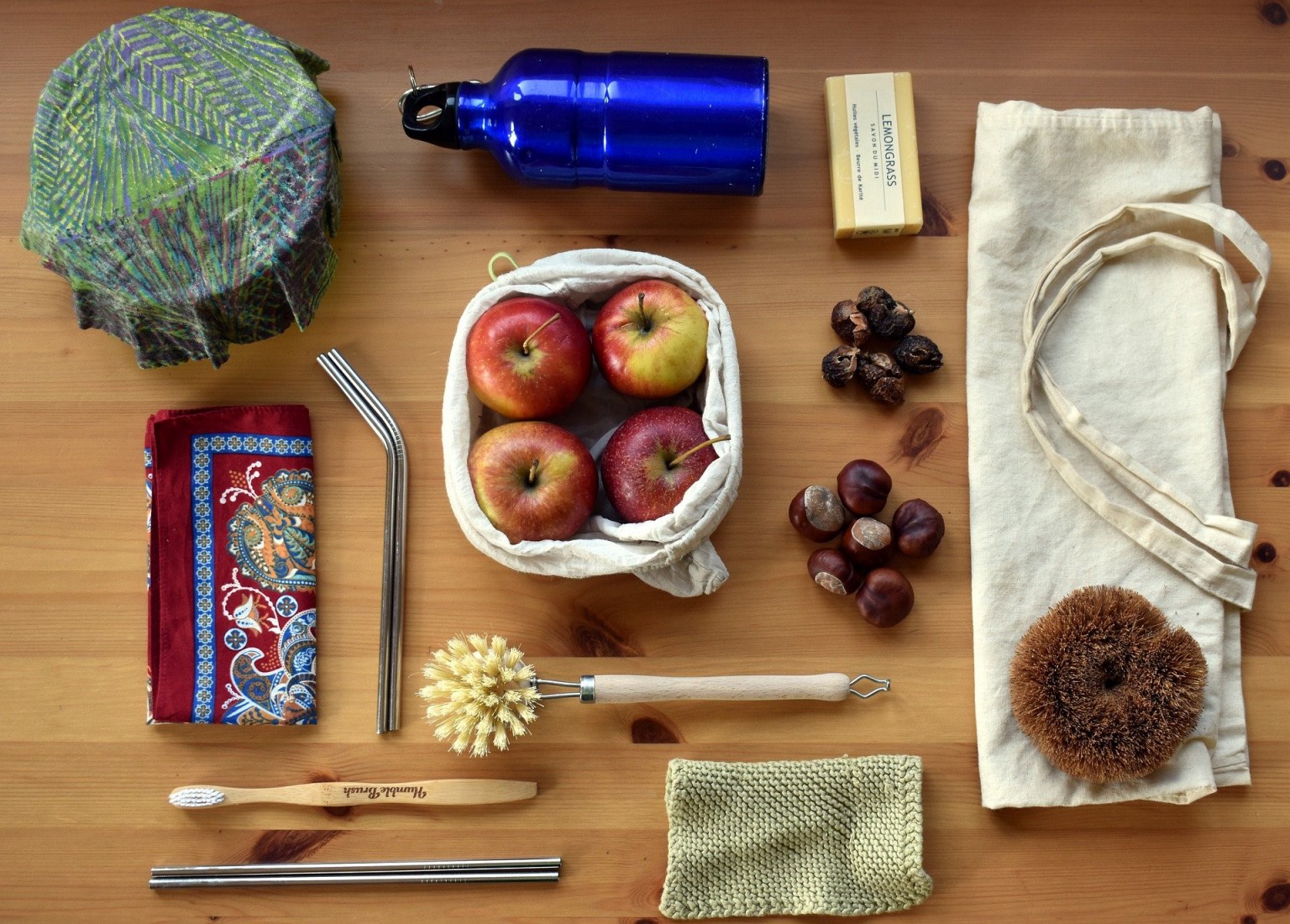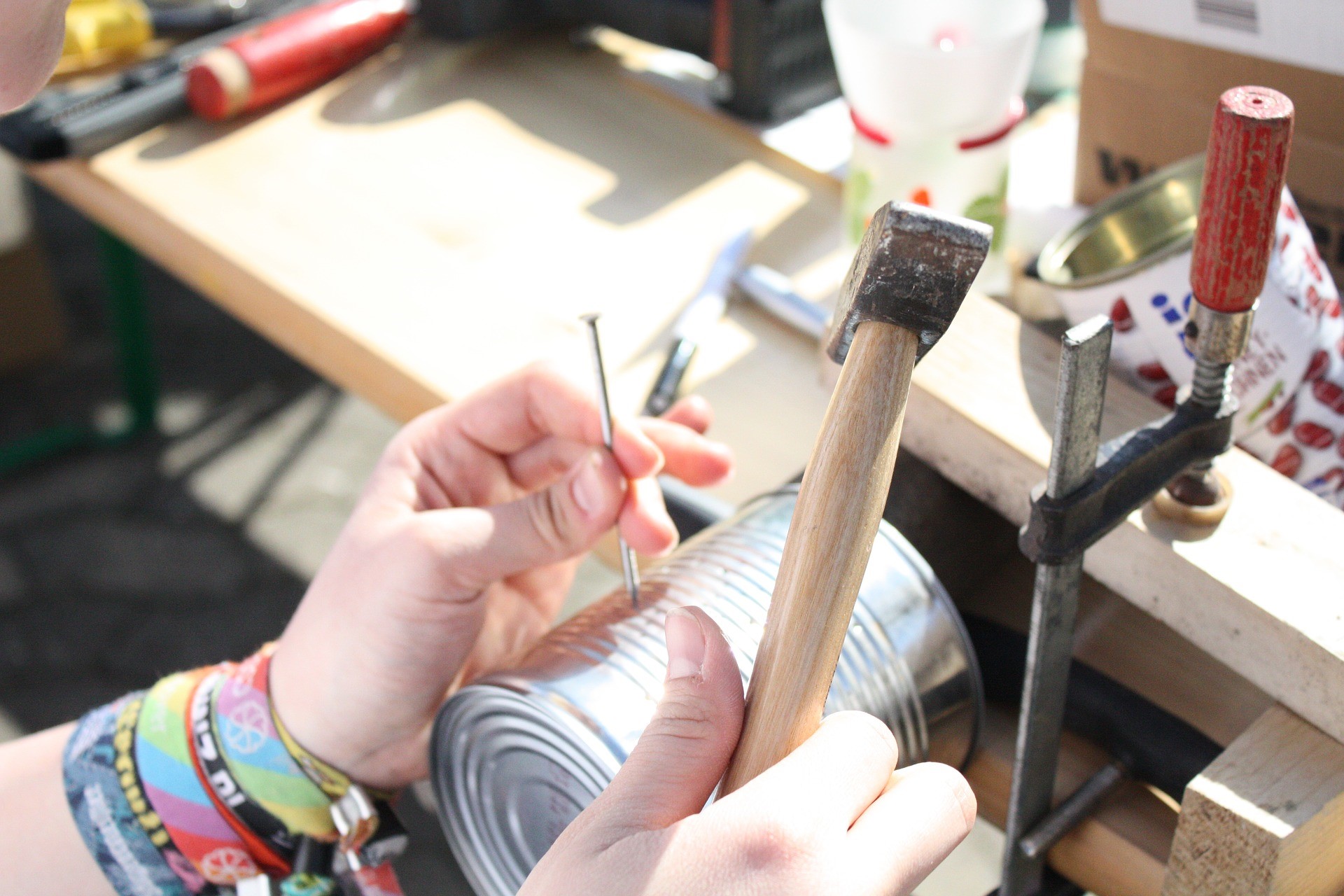Tips for a Zero Waste Home
If you want to live in a truly zero waste home, it is important to think beyond the obvious. Waste is not just about the tangible trash you throw away. It goes right back to what you buy, the choices you make, and where things come from. It's not just about where things end up.
Most zero waste tips articles will talk about individual product swaps you can make, and distinct actions you can take to reduce the waste leaving your home. But in this article, we'll go back to basics. We'll give you some tips to help you look holistically at the problem of waste. And provide a starting point to help you move away from excessive consumption and towards a more sustainable way of life.
 We'll help you build a framework for a zero waste home through examination of 7 'R's of sustainability: refusing, reducing, reusing, repairing, recycling, reliance and resilience.
We'll help you build a framework for a zero waste home through examination of 7 'R's of sustainability: refusing, reducing, reusing, repairing, recycling, reliance and resilience.
Refusing Harmful Products for a Zero Waste Home
The first strategy for a zero waste home involves thinking about the systems we support. Each purchase we make means providing tacit support for the system that produced them. If a product is harmful to people or planet at any stage during its lifecycle, it embodies a wide range of different sorts of waste. It is only when we refuse to purchase such harmful products that we can truly claim to have a zero waste home.
When deciding whether or not to make each and every purchase, we should look very carefully at the entire lifecycle of the product. We should not only look at packaging, and what will happen to something at the end of its useful life. We should also consider waste of all kinds at all stages of the process.
Reducing Consumption for a Zero Waste Home
Another key strategy involves reducing consumption altogether. It is very easy to be caught up in our consumerist culture. We often buy because we are conditioned and 'brainwashed' into thinking that we 'need' the items on sale. When we really think about what we truly need, however, we realise that we can make do with a lot less. Many of the things we buy are unnecessary, and don't actually enrich our lives at all.
It is important to remember that everything comes at a cost. The cost is not only financial. Reducing the amount that we buy in general won't just save money. It can also help in preventing the overuse and waste of energy, water, land and other natural resources. And, of course, it will help us cut down on the amount of packaging we bring into our homes.
Reusing and Upcycling for a Zero Waste Home

When we do need new items for our home, we should always think twice before buying something new. Often, there is something we already own that could be reused or upcycled in a new and interesting way to provide what we need. Even when we don't already have something ourselves, we can often buy or source second-hand or 'pre-loved' items instead of buying new.
Every time we choose an old item rather than buying new, we are preventing all the waste associated with creating something new. Of course, by reusing old items we are also helping to keep them our of the waste stream. And we are helping the world move away from throw-away culture and towards a more circular model of consumption.
Repairing Items and Ecosystems
We should always try to use the items we already own for as long as possible. Often, that means learning how to repair things and put them back into use. We may not be able to repair everything ourselves, of course. But from clothing to furniture, there are plenty of things we can all learn to mend. Our ancestors often took 'make do and mend' for-granted. But sadly, many modern people have forgotten the skills of thrift and repair. Relearning these skills is essential to reduce waste in all its forms.
But another key strategy for zero waste that is often overlooked is the repair of the natural world around us. When we take steps to protect, conserve and enhance the ecosystems in our gardens and immediate surroundings, we often find that they will provide many of the things we need to move closer to a zero waste lifestyle.
For example, my repairing and enhancing our gardens, or a woodland or other natural ecosystem near our homes, we can often find them a source of food that will help us reduce the amount we must buy. Growing your own and foraging can both be great ways to withdraw your support for damaging agricultural systems and reduce waste.
Recycling in Your Zero Waste Home and Through Municipal Systems
Recycling is not just about sorting glass, plastics, metals etc. and leaving them at the kerb. This is an important thing to do. But recycling at home is also crucial. Think about how you might be able to recycle old food packaging etc. for other uses around your home and garden. This can help you to reduce the amount you need to buy. Get full use out of everything that comes into your home before you send it for municipal recycling.
Recycling also includes the 'natural recycling' that takes place in a garden. By taking advantage of nature's cycles we can compost, and mulch, and recycle nutrients to grow food and other resources in our gardens. Biodegradable materials from your home and garden should be cycled back into the system to provide for more of your own needs.
Reliance on Self and Natural Systems
When we talk about reliance in the sphere of sustainability and zero waste living, we are often talking about self-reliance. Self-reliance is key to living in a greener and more eco-conscious way. To create a zero waste home we need to switch from reliance on harmful, wasteful systems and begin to take more into our own hands.
Self reliance is not about selfishness. It is not about catering to your own needs without considering the needs of the wider world. It is not the same as self-sufficiency – it is likely that you will still need to rely on external resources and other people to a degree. But is is about being able to increase your capacity to depend upon your own knowledge and skills, and on the natural resources in your immediate surroundings.
Boosting self-reliance means building knowledge and skills. And doing so is another key strategy. This is one of the most important things if you want to build towards a zero waste home.
For example, key skills that will help you to move closer to a zero waste lifestyle include:
- Gardening and growing your own.
- Cooking and preserving fresh food from scratch.
- Plant identification and foraging.
- DIY and repair skills.
- Sewing, knitting, woodworking and other traditional crafts.
The more you learn, the better equipped you will be to make the most of all the natural resources at your disposal.
Resilience is Key To A Sustainable Zero Waste Home
Self-reliance and resilience go hand in hand. When we talk about resilience, we are talking about personal resilience – your ability to bounce back when things go wrong. And we are also talking about the resilience of the systems you put in place in your home and garden. The latter form of resilience is all about how well those systems can endure over time.
When moving towards a zero waste home, it is important to remember that it is no good thinking short term. It is important not to make changes too quickly or in a way that cannot be maintained. Longevity is important and with every step you take, you should have long-term resilience in mind. You need to think both in psychological and practical terms. It is important to remember that a big part of the battle is changing the way you and other members of your household think and behave.
Being able to bounce back – having personal resilience – is just as important as having practical resilience in the systems around you. Sustainability begins with you. Once you have the right mindset, the basics are more likely to fall into place.
Rome wasn't built in a day. But when you bear these 7 'R's in mind, you should be able to build a great foundation for zero waste living, and create a truly sustainable, truly zero waste home.

 United States, EN (USD)
United States, EN (USD) Europe (EUR)
Europe (EUR) Netherlands (EUR)
Netherlands (EUR) France (EUR)
France (EUR) Spain (EUR)
Spain (EUR) United Kingdom (GBP)
United Kingdom (GBP) We'll help you build a framework for a zero waste home through examination of 7 'R's of sustainability: refusing, reducing, reusing, repairing, recycling, reliance and resilience.
We'll help you build a framework for a zero waste home through examination of 7 'R's of sustainability: refusing, reducing, reusing, repairing, recycling, reliance and resilience. 